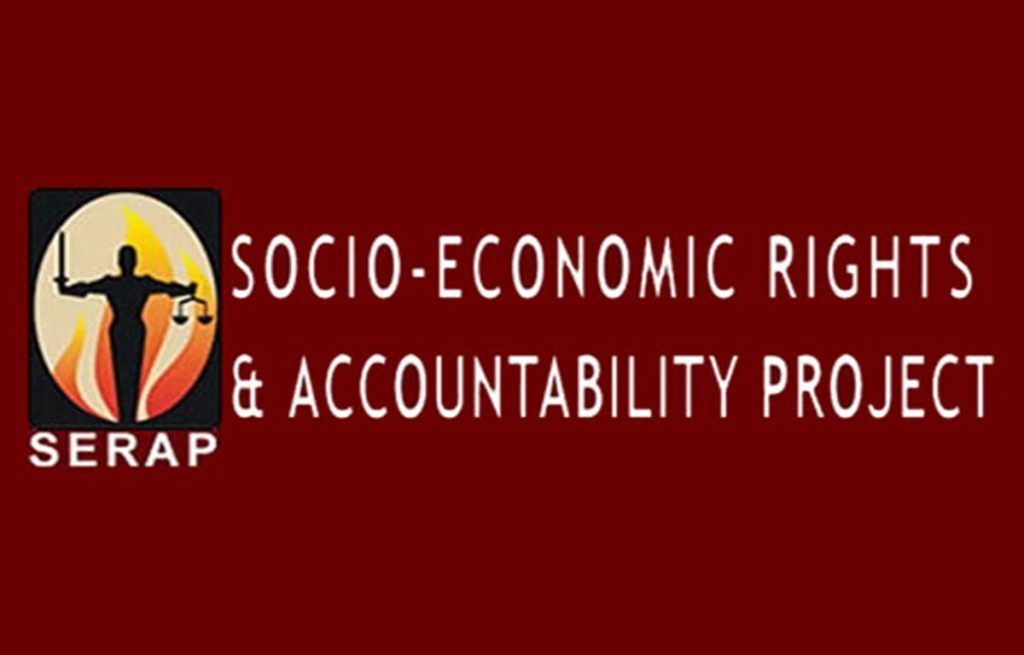The Socio-Economic Rights and Accountability Project (SERAP), a prominent human rights advocacy group, has called on President Bola Tinubu to direct the Governor of the Central Bank of Nigeria (CBN), Olayemi Cardoso, to suspend the implementation of the recent hike in Automated Teller Machine (ATM) transaction fees. SERAP insists that the suspension should remain in place until the Federal High Court in Lagos determines the legality of the increase.
In an open letter dated March 1, 2025, and signed by its Deputy Director, Kolawole Oluwadare, SERAP urged President Tinubu to seek legal advice from the Attorney General of the Federation and Minister of Justice, Lateef Fagbemi (SAN), on whether the CBN is legally obligated to uphold the rule of law by suspending the ATM fee hike. The group emphasized that proceeding with the implementation of the new charges while a lawsuit is pending would undermine the judicial process and violate constitutional principles.
Background of the ATM Fee Hike
The CBN recently announced an increase in ATM transaction fees, sparking widespread public outcry. Under the new policy, ATM withdrawals at off-premises machines now attract a charge of N100 per N20,000 withdrawn, with additional surcharges of up to N500 at locations such as shopping centers and airports. The decision has been criticized as burdensome for Nigerians, particularly low-income earners who rely heavily on ATM services for their banking needs.
SERAP described the fee hike as “patently unlawful, unfair, and unjust,” arguing that it disproportionately affects ordinary citizens and violates their socio-economic rights. The group filed a lawsuit against the CBN on February 21, 2025, under case number FHC/L/CS/344/2025, seeking a court determination on whether the increase is arbitrary and in violation of the Federal Competition and Consumer Protection Act 2018.
SERAP’s Arguments Against the Fee Hike
In its open letter, SERAP outlined several reasons why the CBN should suspend the implementation of the ATM fee hike pending the court’s decision:
- Respect for the Rule of Law: SERAP argued that the CBN is legally bound to maintain the status quo as of February 26, 2025, when it was formally served with the court documents. Proceeding with the fee hike while the case is pending would amount to an act of self-help, which is unacceptable under the law.
- Judicial Integrity: The group warned that allowing the CBN to implement the new charges would set a dangerous precedent, potentially encouraging other government agencies to disregard pending court cases. “The credibility of the judiciary is at stake,” SERAP stated.
- Protection of Citizens’ Rights: SERAP emphasized that the fee hike disproportionately affects ordinary Nigerians, particularly those in low-income brackets. The group argued that the CBN has a duty to protect the socio-economic rights of citizens and ensure that its policies do not exacerbate financial hardships.
- President Tinubu’s Commitment to the Rule of Law: SERAP reminded President Tinubu of his inaugural promise to govern Nigeria in accordance with the Constitution and the rule of law. The group urged the President to demonstrate his commitment by directing the CBN to suspend the fee hike until the court delivers its judgment.
Potential Consequences of Ignoring the Court Process
SERAP warned that allowing the CBN to proceed with the ATM fee hike while the lawsuit is pending could have far-reaching consequences. The group argued that such actions would erode public trust in the judiciary and undermine the principles of due process and fairness.
“If the CBN is allowed to proceed with this fee hike, other government institutions may adopt similar dismissive attitudes toward court proceedings,” SERAP stated. The group emphasized that judicial independence requires that cases be allowed to proceed without undue interference, ensuring that decisions are made based on the merits of the arguments presented in court.
Calls for Legal and Policy Reforms
Beyond the immediate issue of the ATM fee hike, SERAP called for broader legal and policy reforms to ensure that government agencies act in the public interest and uphold the rule of law. The group urged President Tinubu to take proactive steps to strengthen accountability mechanisms and prevent arbitrary decisions by regulatory bodies.
SERAP also emphasized the need for the CBN to prioritize the welfare of ordinary Nigerians in its policy decisions. The group argued that the ATM fee hike is inconsistent with the CBN’s mandate to promote financial inclusion and protect consumers’ rights.
Public Reaction and Broader Implications
The CBN’s decision to increase ATM fees has sparked widespread criticism from civil society organizations, consumer rights groups, and the general public. Many Nigerians have expressed frustration over the additional financial burden, particularly in the face of rising inflation and economic challenges.
SERAP’s lawsuit and open letter have drawn attention to the broader issue of government accountability and the need for regulatory bodies to act in the public interest. The case has also highlighted the importance of judicial independence and the rule of law in ensuring that citizens’ rights are protected.
Conclusion: A Test of Leadership and Accountability
The controversy surrounding the CBN’s ATM fee hike presents a critical test of leadership and accountability for President Bola Tinubu and his administration. SERAP’s call for the suspension of the fee hike pending a court decision underscores the importance of upholding the rule of law and protecting citizens’ rights.
As the case unfolds, all eyes will be on the Federal High Court in Lagos to determine the legality of the CBN’s decision. In the meantime, SERAP’s advocacy serves as a reminder of the vital role that civil society organizations play in holding government institutions accountable and ensuring that policies are fair, just, and in the public interest.
President Tinubu’s response to SERAP’s call will be a significant indicator of his administration’s commitment to the rule of law and its willingness to prioritize the welfare of ordinary Nigerians. The outcome of this case could have far-reaching implications for governance, accountability, and the protection of citizens’ rights in Nigeria.













